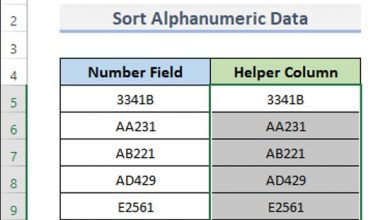What is Scientific Knowledge Characteristics Examples Working
Scientific knowledge is responsible for part of the transformations that occur in society. He seeks to solve problems and make people’s lives easier. Technological innovations and new products, for example, are born from science.
Man, as an intelligent being, has always produced knowledge even without knowing it. This explains, for example, the ability of peasants to recognize the right time to sow the land or carry out the harvest during antiquity. Some time later, in the 17th century, humanity already had better plows and even some machinery to carry out planting efficiently. Currently, the advancement of agriculture already involves chemical fertilizers, pesticides against pests and even monitoring of crops with drones.
We tell the story above so that you can understand the different types of knowledge. In the first case, which involves ancient peasants, knowledge is popular, transmitted from generation to generation based on experience. As new resources are created to facilitate planting or combat pests, we have scientific knowledge.
What is scientific knowledge?
Science is the acquisition of knowledge based on the scientific method. This type of knowledge needs to be tested and evaluated, through observation techniques and experiments.
Scientific knowledge can be understood, therefore, as a way of finding solutions to a problem, through studies and practices . A rigorous and systematic language is used to describe phenomena and explain how they react to each other.
Science is capable of predicting the probability of future events and objectively describing reality, without the researcher’s point of view having any influence. In addition, it builds a system of organized ideas, with the intention of knowing, interpreting and intervening in a specific reality .
“Science is a whole set of rational attitudes and activities, aimed at systematic knowledge with a limited object, capable of being subjected to verification.”
Trujillo Ferrari, 1974
Characteristics of scientific knowledge
- Objective : the way the researcher thinks does not influence the results.
- Rational: it is solely based on reason, with no room for sensations and impressions.
- Systematic: there is a concern to organize ideas in a systematized way, including partial knowledge in broader contexts.
- General: knowledge serves as a basis for the creation of general laws and norms.
- Verifiable: it is possible to demonstrate the veracity of the studies.
- Fallible: science is not always right, assuming that man produces knowledge, there is the possibility of errors.
Science Rankings
Scientific knowledge has two major classifications: formal and empirical . The first seeks to understand the phenomena from logic, mathematics. The second considers the facts and processes involved to be more important.
Within the empirical sciences there are two more groups: the natural sciences (Physics, Chemistry, Biology and Astronomy) and the Social Sciences (Sociology, Law, Anthropology, Economics and Politics).
Examples of scientific knowledge
See below the main methods used to generate scientific knowledge and application examples:
Observation
This data collection technique uses the senses to obtain information about certain aspects of reality.
controlled experimentation
Experimentation is a type of scientific testing in which the researcher has control over the conditions. Thus, he can change certain factors and keep others to observe behavior variation.
Of course, controlled experiments, carried out in laboratories, are much more complex than planting beans. However, this serves as an example so you can understand the mechanics of the process.
Factors such as probability, context, critical view and theories produced by other authors are also fundamental to the scientific method.
Differences between scientific knowledge and common sense
Popular knowledge, also called common sense, is constructed spontaneously, based on a direct relationship with things. This type of knowledge is characterized as superficial, sensitive, subjective, unsystematic and uncritical.
Scientific knowledge, in turn, as already mentioned, is built in a systematic, verifiable way and seeks an approximation with the exact.
There are also two other types of knowledge: religious and philosophical. The first is based on doctrines, but its evidence is unverified. The second depends much more on experience to question human problems than on experimentation.
How does the scientific method work?
Scientific methodology is essential for any type of study. The definition takes into account factors such as purpose, approach and procedures.
Check out the classification possibilities below:
- Purpose: exploratory , descriptive or explanatory .
- Approach: qualitative , quantitative or quali-quanti.
- Procedures: instruments used to collect data ( interview , questionnaire , observation , among others).
The research method is considered scientific when:
- Identifies a problem, that is, a certain gap in a body of knowledge;
- Examines the state of the art to try to solve the problem;
- Invents new ideas or produces empirical data to try to solve the problem;
- Obtains a solution and seeks evidence to support it;
- Investigate the consequences that are linked to the solution;
- It corrects the hypotheses raised at the beginning of the study, refuting or validating them.
The main scientific methods
Scientific methods are divided in terms of approach (inductive, deductive, hypothetical-deductive and dialectical) and procedure (historical, comparative, statistical and monographic). Understand each one of them better:
Inductive Method
Induction starts from the observation of particular facts to generate general information, a pattern. There is an interest in universalizing the finding and turning it into a rule.
deductive method
This method of scientific research takes the opposite route to the inductive one: it transforms universal statements into particular ones.
hypothetical-deductive method
Hypothetical-deductive reasoning begins with the perception of a gap. From this, hypotheses are formulated from a deductive perspective (transforming general laws into particular ones). These hypotheses are tested in order to confirm or refute.
dialectical method
As the name implies, the production of knowledge takes place from debates and discussions. There is always a negation of the negation to create an affirmation. In short, the researcher takes a given argument and verifies its opposite.
historical method
The investigation verifies the historical origins of the institutes, facts and phenomena, as well as their development over time. It also includes an analysis of the historical context. This time machine is put to work in order to understand reality today.
comparative method
As the name implies, this line of reasoning establishes a relationship between facts, phenomena, institutes and society. The comparison can only be performed if the researcher understands the two objects studied well.
Statistical method
Data, represented statistically, are analyzed and compared. Thus, the researcher is able to verify whether there is indeed a connection between the variables . Remember: the more quantitative data collected, the safer the conclusion about a phenomenon will be.
monographic method
Also called case study , the monographic method shows the path that needs to be taken to investigate a fact or phenomenon. The research focuses on an isolated case or a small group of facts that have similarities.
The case studied can be “emblematic” for a general rule or be classified as an exception to the general rule.
Step by step to produce scientific knowledge
The knowledge produced by science goes through the following stages:
observe the reality
How does the fact or phenomenon appear in nature? This question is answered from the observation work.
identify a problem
Define a research problem , that is, an observed difficulty that you intend to solve with your study. Represent this problematization in the form of a question.
Raise chances
Construct verifiable statements that try to answer the question of your research problem. This step depends a lot on a good theoretical foundation , that is, the reading of other works that deal with the same subject.
Choose the methodology
Choose the procedures and techniques that will be used to develop the research.
test the hypotheses
The hypotheses raised at the beginning of the investigation can be validated or refuted. It is at this moment that you have the opportunity to unite theory with practical experiences.
Analyze the results and reflect
It is time to present the results and discussions . One way to do this is to verify that the research question was actually answered with the collected information.

